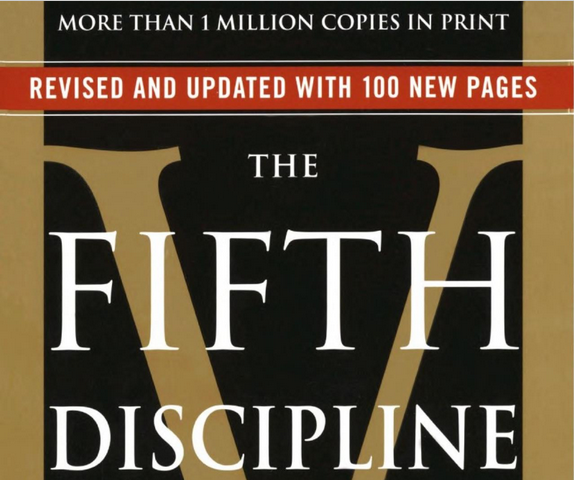
Ever come across a book that transforms the way you view the world, particularly when it comes to organizational dynamics and personal growth? Peter Senge’s “The Fifth Discipline” is precisely that kind of book. Published in 1990, this seminal work has left an indelible mark on the fields of management, leadership, and learning.
At its core, “The Fifth Discipline” advocates for the power of organizational learning. Senge argues that in today’s complex and rapidly changing world, organizations must embrace continuous learning and adaptability to thrive. He introduces the concept of the “learning organization,” where individuals, teams, and the entire organization are committed to learning and improving continuously.
One of the book’s key insights is the idea of “systems thinking.” Senge explains how problems in organizations are often interconnected and result from systemic issues, rather than isolated incidents. By adopting systems thinking, leaders can better understand the underlying causes of problems and make more effective decisions to address them.
Another critical element of the book is the concept of personal mastery. Senge emphasizes the importance of individuals continuously developing their skills and abilities, fostering a culture of personal growth within the organization. When employees are encouraged to excel personally, it positively impacts the entire organization’s performance.
“The Fifth Discipline” also explores other essential disciplines, such as mental models, shared vision, and team learning, all of which contribute to the development of a learning organization.
The book has been a cornerstone in the field of organizational development, inspiring leaders to create environments where innovation and adaptability thrive. It’s a timeless guide for those seeking to transform their organizations into dynamic, learning-oriented entities.
In conclusion, “The Fifth Discipline” serves as a blueprint for modern leaders and organizations, emphasizing the importance of continuous learning, systems thinking, and personal growth. It’s a book that challenges the status quo and encourages a fundamental shift in how we approach leadership and organizational management. As the world continues to evolve at a rapid pace, the principles outlined in this book remain as relevant as ever, making it a must-read for anyone in the realm of leadership and management.




